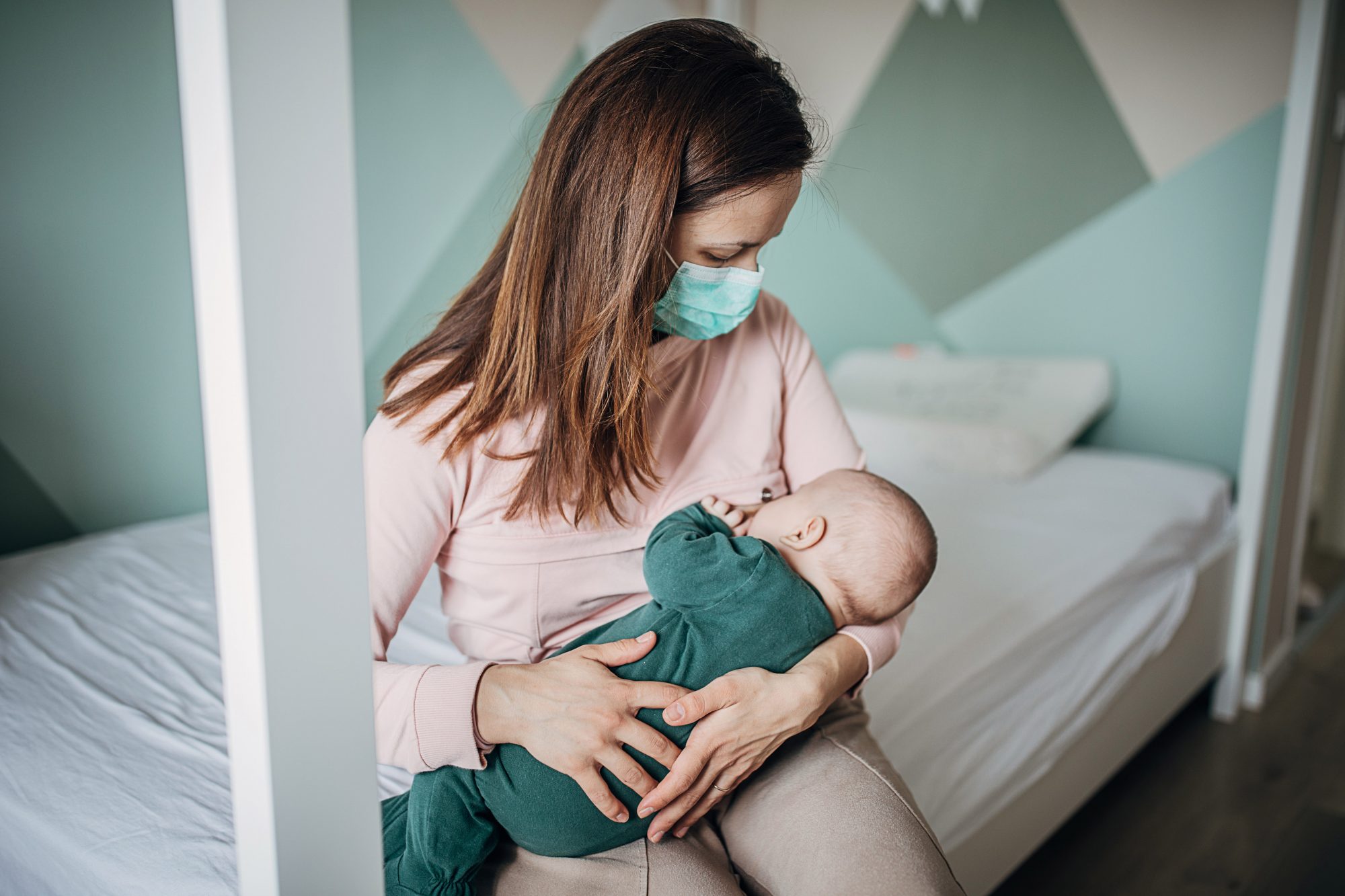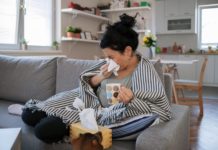Here's some good news for postpartum mamas: Most experts and organizations recommend that breastfeeding women receive the COVID-19 vaccine. You've probably got lots of questions, so we spoke with experts to learn more about safety, benefits, and more.
Can Breastfeeding Parents Get the COVID-19 Vaccine?
The short answer? Yes. Experts and organizations—including the Centers for Disease Control and Prevention (CDC), American College of Obstetricians and Gynecologists (ACOG), the Academy of Breastfeeding Medicine (ABM)—currently recommend breastfeeding women receive the COVID-19 vaccine. Still, you should consult your health care provider to weigh the benefits and risks.
Because the vaccine is still new, we don't yet have much data specific to nursing mothers, says Nicole Calloway Rankins, M.D., MPH, a board-certified OB-GYN Physician, host of the All About Pregnancy & Birth podcast, and member of the Lansinoh Clinical Advisory Network. "But we have learned that overall the vaccine is very well tolerated with minimal side effects. We've also learned that the second dose of the vaccine (for Pfizer and Moderna) is more likely to cause side effects like fatigue, muscle aches, and fever. These usually resolve in 24-36 hours."
The available research suggests that nursing women don't have any more adverse outcomes than anyone else, adds Henry C. Lee, M.D., Associate Professor of Pediatrics and member of the Lansinoh Clinical Advisory Network. "As more people get vaccinated, there will be further tracking of any potential adverse side effects," he adds.
"With the vaccine, you're accepting the risks of side effects, which thus far we know to be minimal. Without the vaccine, you're accepting the risks of getting COVID, which we know can potentially be devastating," says Dr. Rankins.
Breastfeeding moms may also be reassured by a July 2021 study by researchers at the University of California, San Francisco. They collected 13 breast milk samples from seven moms, up to 48 hours after they received Pfizer or Moderna. Results showed that "vaccine-associated mRNA" wasn't detected in the samples. "These results provide important early evidence to strengthen current recommendations that vaccine-related mRNA is not transferred to the infant and that lactating individuals who receive the COVID-19 mRNA-based vaccine should not stop breastfeeding," according to the study authors.

Why Haven’t Breastfeeding Mothers Been Included in Vaccine Trials?
"Pregnant and breastfeeding women are almost always excluded from clinical trials, so it's not unusual," says Dr. Rankins. That's because experts don't fully understand the risks to babies, who might be affected through a mother's breast milk. Some organizations, such as the American College of Obstetricians and Gynecologists (ACOG), advocate that this standard should be changed. They believe "pregnant and lactating individuals should be given the opportunity to participate, and not have that decision made for them," says Dr. Rankins.
What Are the Benefits of Getting the COVID-19 Vaccine While Nursing?
Breastfeeding parents must decide for themselves whether to get vaccinated—but experts say the benefits outweigh the risks. "The benefit of getting the vaccine is primarily that the breastfeeding woman will potentially gain protection from either getting COVID-19 or have less severe disease if they do get COVID-19, so that they can continue to care for their infant," says Dr. Lee.
What's more, "based on what we know about other vaccines, we believe that the antibodies that mom produces will pass through the breast milk and may confer protection for the baby," says Dr. Rankins. Indeed, according to the CDC, "Recent reports have shown that breastfeeding people who have received COVID-19 mRNA vaccines have antibodies in their breastmilk, which could help protect their babies. More data are needed to determine what protection these antibodies may provide to the baby."
Both the Pfizer and Moderna vaccine require two doses—you receive Pfizer's second dose three weeks after the first dose, and Moderna's four weeks afterward. The Johnson & Johnson vaccine, on the other hand, requires one dose. After your body builds sufficient immunity (about two weeks about the last dose), you'll have strong protection against severe illness. The coronavirus can be life-threatening in severe cases, so the vaccine could potentially spare the lives of a mother or her baby.
How Should I Make the Decision?
Still unsure about whether to get the COVID-19 vaccine while breastfeeding? Start by checking out the CDC website, which has a wealth of information about the vaccines. Also, "when considering whether to get the vaccine while breastfeeding, it's important to ask your health care provider in the context of your own personal risk," says Dr. Rankins. "For example, if you have underlying health problems like diabetes, high blood pressure, or lung disease that increase your risk of having a more severe form of COVID, you may be more inclined to get the vaccine while breastfeeding." You may also be more willing to get vaccinated if you have a high-risk job (like if you're a teacher, nursing home worker, health care worker, grocery store cashier, etc.)
It may also help to look at how breastfeeding women respond to similar vaccinations. "We know that other vaccines given while breastfeeding are exceedingly safe with very minimal risks to moms or babies," says Dr. Rankins. "There is nothing about the COVID vaccine that leads us to believe that it will be any different." Plus the COVID vaccine is an mRNA vaccine, meaning that no dead or alive COVID-19 viruses are being put in your body. In other words, mothers and their babies can't get infected with the coronavirus through the vaccine.
The Bottom Line
Experts and medical organizations recommend that everyone 12 and older receive the COVID-19 vaccine, even if you're breastfeeding. Check with your health care provider about any questions or concerns. "This disease is devastating and these vaccines will help stop it, but only if enough of us get it," says Dr. Rankins.





